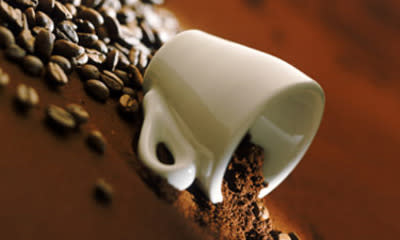Coffee 'Reduces' Risk Of Depression In Women

Women who drink four or more cups of coffee a day may be less likely to suffer from depression than others, according to a new study.
The research shows that those who drink one or fewer cups of caffeinated coffee per week have a 20% higher risk of clinical depression than those who consume four a day.
Experts from Harvard School of Public Health in Boston pointed out that caffeine had "well-known psychostimulant effects" including "increased sensations of well-being and energy".
They found no similar association with decaffeinated coffee or other sources of caffeine, including soft drinks, tea and chocolate.
The research involved 50,739 women who participated in the Nurses' Health Study, a major US investigation exploring links between health and lifestyle.
None of the women, who had an average age of 63, had depression at the start of the 10-year study which began in 1996.
Just over 2,600 of those questioned who drank little or no coffee developed depression over the decade.
Those who consumed two to three cups per day had a 15% decreased risk of developing depression.
Writing in the journal Archives of Internal Medicine Dr Michel Lucas said: "Our results support a possible protective effect of caffeine, mainly from coffee consumption, on risk of depression.
"Further investigations are needed to confirm this finding and to determine whether usual caffeinated coffee consumption may contribute to prevention or treatment of depression."
Other risk factors such as medical conditions, marital status, smoking and activity levels were also taken into account during the research.
A previous study from Finland found a reduced risk of suicide with progressively higher levels of coffee consumption.
The US scientists were unable to assess the effect of very high coffee consumption levels because too few of their study participants fell into this category.
The effects of drinking too much caffeine include increasing the heart rate and causing anxiety.

 Yahoo News
Yahoo News 